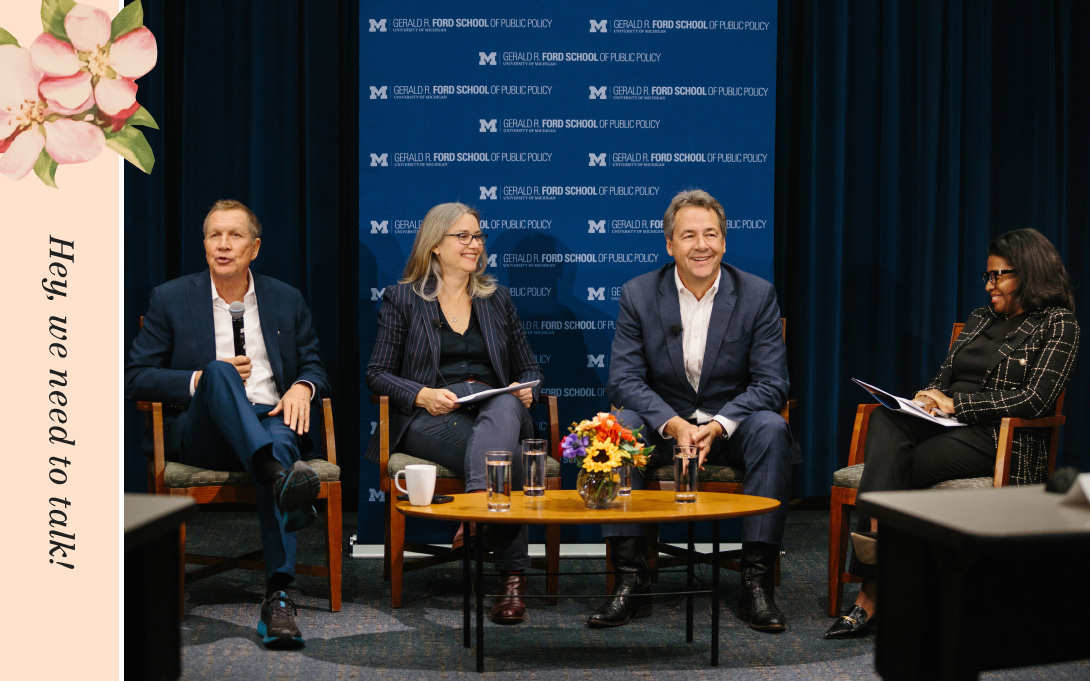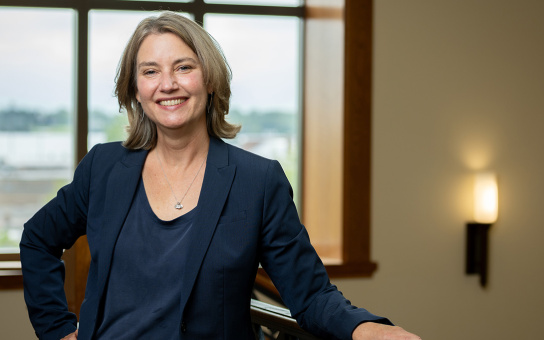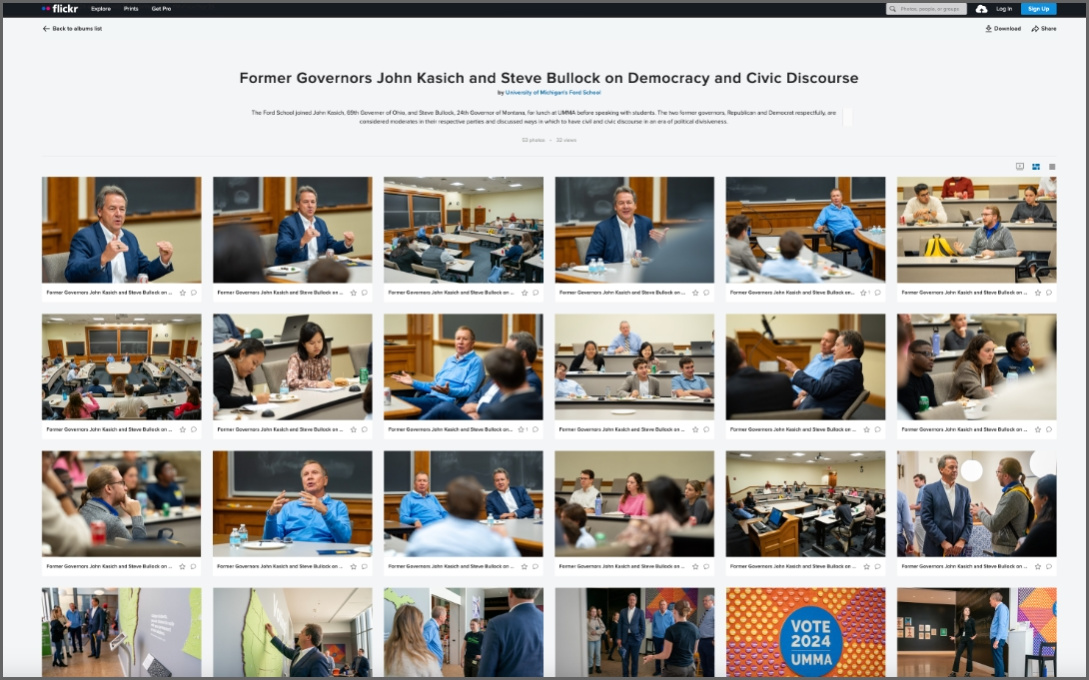
As the 2024 elections approached, former governors Steve Bullock (D-MT) and John Kasich (R-OH) modeled speaking and listening across political and policy fault lines. The talk was organized by the Ford School with support from the University of Michigan’s Year of Democracy initiative. Here are excerpts from the conversation.
How we got here
Steve Bullock: I’ll say [how we got here] in three ways. Redistricting: Back in the late ’80s, 135 congressional districts were competitive, meaning within five points could go either way. Now, it’s only 30 out of 435. There’s no incentive system to compromise. Second, the repeal of the Fairness Doctrine in the 1980s and the changed media landscape. Then, Citizens United, [which] in 2010 said corporations have the same rights of speech as any of us, and independent expenditures can’t corrupt. The rise of unregulated, undisclosed money; it was about $5 million in 2008; it’s over a billion dollars in 2020.
John Kasich: To me, it’s simply a character issue. You should run for office because there’s something you want to do. When I went to Congress, the Democrats were in charge. It never occurred to me that they were in charge. I [thought], “This is what I’m going to do.” And I didn’t really think about it as a Republican. I had some commitment to the party, but the party was never my master. It was only my vehicle.
I believe that a society rises or falls on the basis of the quality of the shepherds that lead the flock. You have good shepherds, you have a healthy flock. You got bad shepherds, what happens? The flock scatters. We all have to play a role in being a good shepherd to somebody.”
John Kasich
How to work together
SB: I’m more optimistic at the state level. For the entire time that I was in office, my legislature was a little less than supermajorities. But we figured out ways to get things done, be it expanding health care, be it infrastructure, be it investments in education.
JK: I believe that a society rises or falls on the basis of the quality of the shepherds that lead the flock. You have good shepherds, you have a healthy flock. You got bad shepherds, what happens? The flock scatters. We all have to play a role in being a good shepherd to somebody. So, it starts with us.
SB: We’ve got to make sure that we have free and fair elections. Look, if you guys 18 to 30 voted in every election, you would decide every election, and there’s at least one day every two years that you’re more powerful than any governor or corporation or special interest. That’s on election day. If we erode the integrity of elections or people’s trust in elections to the point that people just say, “I ain’t voting,” well, then we’re gonna be in a heck of a lot worse position even than we are today.
JB: I don’t care what the issue is. If you take people who surround the issue, if you put them in a room, you don’t let them walk in the room heavy in terms of what they represent, but to walk in there with an open mind, recognizing there’s a problem, it’s amazing what you can fix. And I don’t think enough of that is being done.
What can we do?
SB: My hard days in public service were also so impactful. Don’t be dispirited by the lack of civility, the seeming polarization, the outside interests. Don’t be dispirited because it really takes one person with a passion and values to stand up and say, “I’m going to step into this. I’m gonna offer my talents and skills because we can be better than where we are today.”
JK: I have one last thing to say. What’s your purpose? What is your mission? Why were you put on this earth? And I don’t care how old you are; it’s never time to quit. And I don’t care if you’re 8 or you’re 88, what is your plan? What are you here to do? Everybody here has gifts, and everybody here has a purpose. Find it and do it.
Edited by Daniel Rivkin
Democracy thrives when we come together to listen, learn, and engage."
Democracy scholar Jenna Bednar, faculty director of UMich Votes and Democratic Engagement and co-chair of the U-M’s Year of Demo

For several years, the Ford School’s Conversations Across Differences public event series has brought together speakers who represent different, sometimes conflicting, perspectives and backgrounds. The Ford School has started to expand Conversations Across Differences, building the concepts into the school’s curriculum. Led by professor Morela Hernandez, the effort is introducing facilitation and conflict resolution skills, and opportunities for students to practice connecting across differences.
At a time of growing threats and fractures in our society, the school has plans to go even bigger. Faculty and staff are developing a broader initiative, including teaching, research, and practice around what Bednar has called "resilient democracies." As envisioned, the initiative will be a creative, research-based approach that seeks to reinforce critical norms and understanding around mutual tolerance, democratic institutions, and the value of engaging in civic life. Ideas for this initiative include hiring new faculty with expertise in democratic norms, democracy policy, and institutions; integrating democracy-based curriculum and research; and offering civic engagement opportunities, fellowships and student research assistantships, and additional public events.
Learn more
Event video:
Event photos:

View on event photos on Flickr
More in State & Hill
Below, find the full, formatted fall 2024 edition of State & Hill. Click here to return to the fall 2024 S&H homepage.